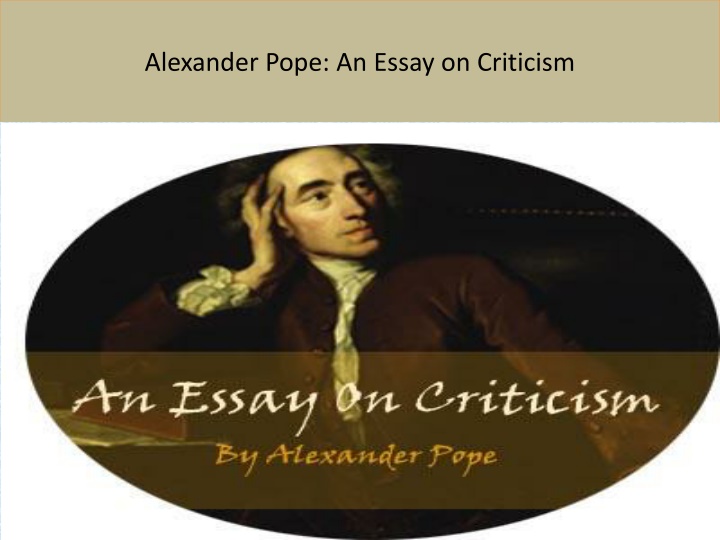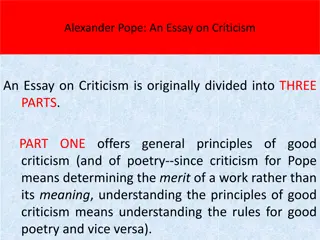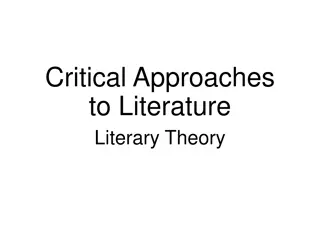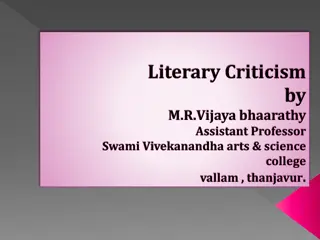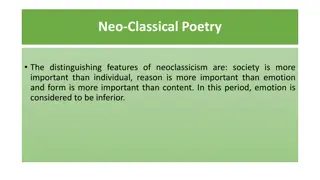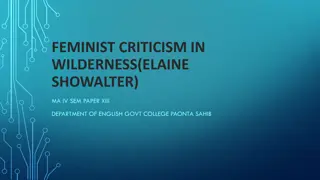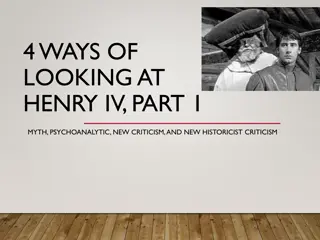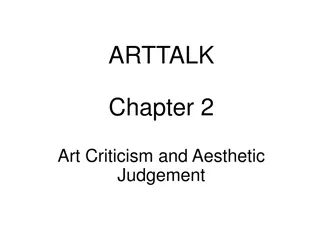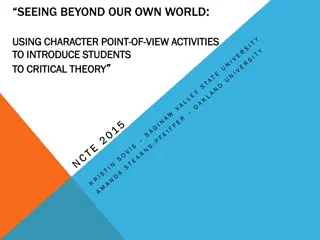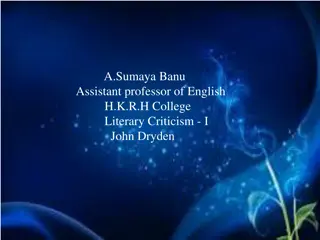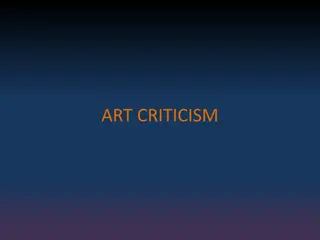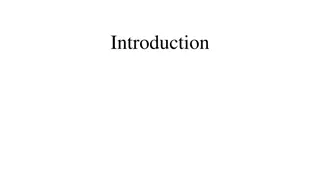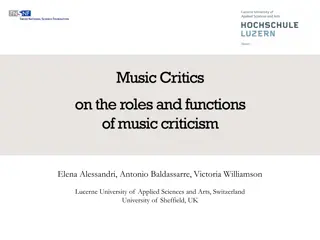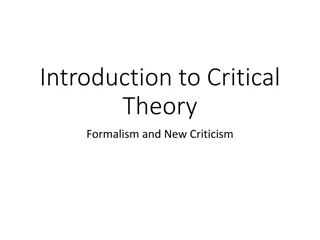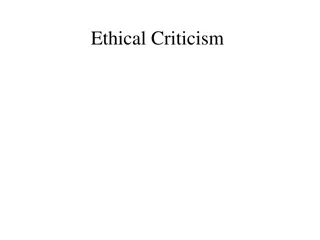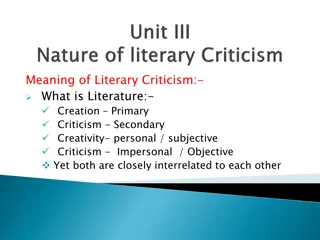Alexander Pope: An Essay on Criticism
Alexander Pope's "An Essay on Criticism" is a significant literary work written in 1711 during the Enlightenment era. This poem, consisting of 744 lines, showcases Pope's Neoclassical ideals and critical insights influenced by ancient literary figures like Aristotle and Horace. Through this work, Pope explores poetic rules, maxims, and stylistic assurance, presenting famous quotations such as "To err is human, to forgive divine." Discover the essence of classical criticism embodied in Pope's compelling verses.
Download Presentation

Please find below an Image/Link to download the presentation.
The content on the website is provided AS IS for your information and personal use only. It may not be sold, licensed, or shared on other websites without obtaining consent from the author.If you encounter any issues during the download, it is possible that the publisher has removed the file from their server.
You are allowed to download the files provided on this website for personal or commercial use, subject to the condition that they are used lawfully. All files are the property of their respective owners.
The content on the website is provided AS IS for your information and personal use only. It may not be sold, licensed, or shared on other websites without obtaining consent from the author.
E N D
Presentation Transcript
Alexander Pope: An Essay on Criticism Alexander Pope lived from 1688 to 1744 and was one of the most popular and influential writers of his time. He was writing during the Enlightenment era (1660- 1800). Enlightenment thinkers importance of science and reason and claimed that the world is knowable and testable. This context and the excitement that surrounded the changes brought to culture through the Enlightenment are central to 'An Essay on Criticism.' emphasized the
Alexander Pope: An Essay on Criticism In addition to An Essay on Criticism, Pope also wrote other critical works such as: 1. Imitations of the Epistles of Horace to Augustus 2. His Letters 3. His Preface to his edition of Shakespeare s Plays
Alexander Pope: An Essay on Criticism An Essay on Criticism is originally a poem written in heroic couplets first published anonymously in 1711 when Pope was only 22 years old. It is inspired by Horace s Ars poetica and has also borrowed from various other writers of the Augustan Age. In it Pope set out poetic rules, Neoclassical maxims, with a combination of ambitious argument and a great stylistic assurance.
Alexander Pope: An Essay on Criticism The chief critical guides for Pope s opinions in the Essay are Aristotle, Horace, Quintilian and Longinus among the ancients. Among the critics of his age, he owes allegiance to Boileau and the other critics of his school. The literary models he sets before us are Homer and the other ancients who in his opinion, are immortal and imperishable.
Alexander Pope: An Essay on Criticism It is made of 744 lines. It is also the source of various famous quotations such as: "To err is human, to forgive divine", "A little learning is a dang'rous thing" (frequently misquoted as "A little knowledge is a dang'rous thing"), and "Fools rush in where angels fear to tread".
The End See you next lesson!
